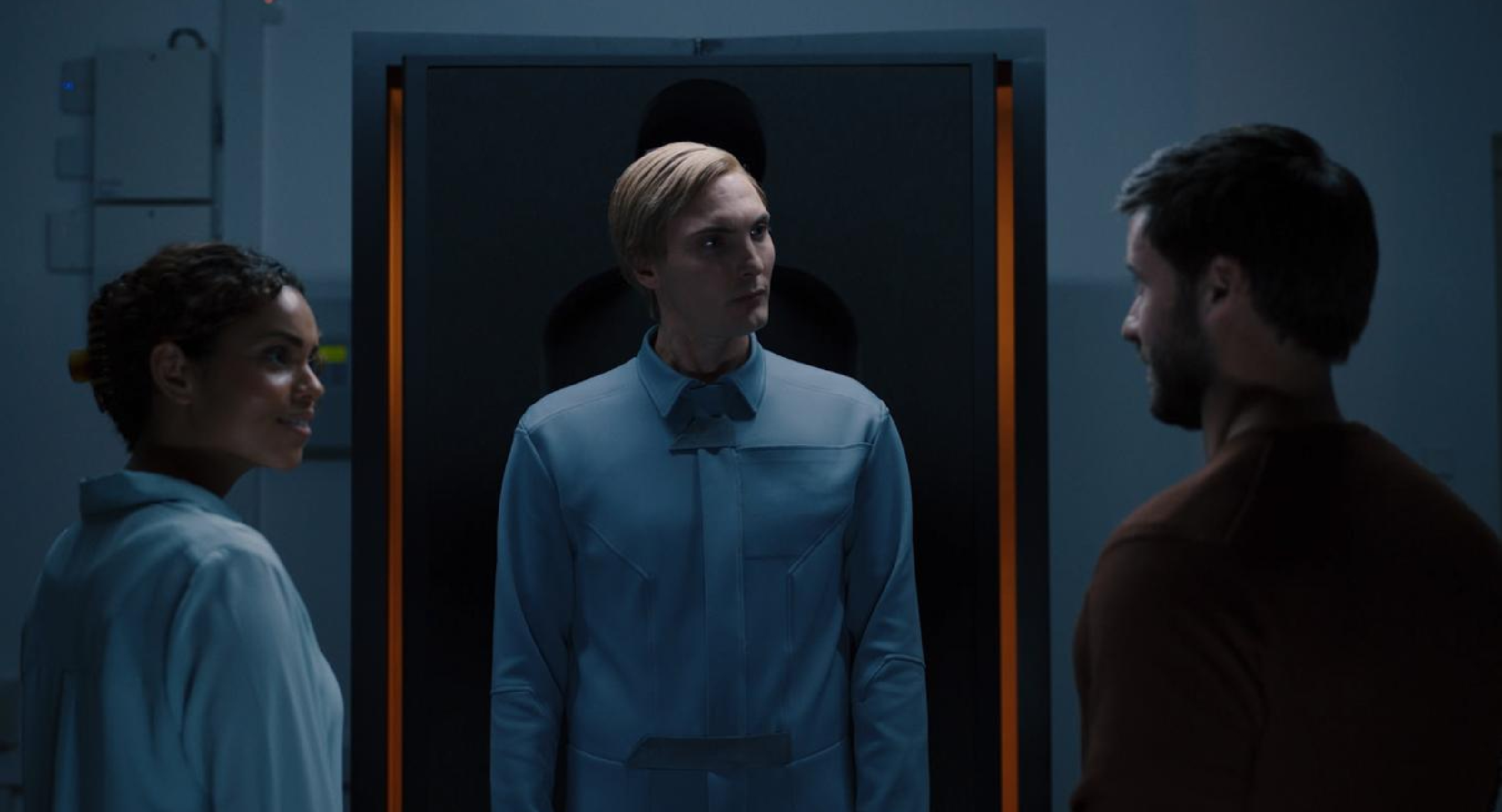T.I.M. – Film Review
Published August 20, 2023

Abi is offered the prototype model of T.I.M. a “Technologically. Integrated. Manservant” to help her and her husband Paul as they move into a new house.
The intriguing idea behind Spencer Brown‘s film T.I.M. revolves around the incorporation of artificial intelligence into daily life. The movie examines the implications of interactions between humans and artificial intelligence, delving into the subtleties of reliance, emotional ties, and ethical limits. Although the movie has a promising beginning, it doesn’t fully realize its potential, which leads to a mediocre cinematic experience that leaves a lot to be desired.
The story revolves around Abi (Georgina Campbell) and Paul (Mark Rowley), who are relocating to a new home. Abi is presented with the prototype version of T.I.M. (Eamon Farren), a “Technologically Integrated Manservant,” which is intended to help and support the couple in their new life. This sets the scene. Abi’s skepticism and Paul’s enthusiasm for T.I.M. are displayed in the initial character setup, creating an intriguing dynamic that could have been expanded upon.
Unfortunately, the film’s character growth doesn’t get much deeper. Although Abi’s internal struggle with integrating an AI into her life is alluded to, there isn’t much nuance or depth to her transformation. Paul’s enthusiasm for T.I.M. is a little one-sided, which makes the audience long for a more in-depth investigation of his motivations. As the flick’s main AI character, T.I.M. has the most potential for complexity, but the script only barely touches the surface of his emotional development.
The film’s strength lies in its examination of timely issues like human-AI interaction, technology ethics, and the hazy boundaries between artificiality and companionship. The initial exchange between Abi and T.I.M. suggests a path towards an intense bond that defies accepted notions of what relationships are. But the story is reluctant to venture outside the box, opting instead for a less risky, more foreseeable course.
The investigation of AI ethics raises important issues regarding the effects of relying on technology for emotional support and fulfillment. These questions, however, are never fully explored or satisfactorily addressed. It chooses a more cursory examination of these themes rather than the potential for a more nuanced discussion.
The direction of Spencer Brown exhibits both promise and inconsistency. The deliberate pacing of the film, especially in the first act, allows for an intriguing buildup. This pacing, though, turns out to be a double-edged sword because the narrative’s slow development makes it harder for the audience to care about the characters and their problems.
Despite being competent, the cinematography lacks a distinctive visual aesthetic that would enhance the storytelling. Although the production design effectively depicts the integration of AI into domestic settings, it falls short in utilizing the futuristic setting’s visual storytelling potential. As a result, the visual impact of the movie feels like it could have been improved.
Given the limitations of the script, Georgina Campbell, Mark Rowley, and Eamon Farren give respectable performances. Campbell is able to convey Abi’s inner conflict, but the thinness of the script prevents her from fully inhabiting the part. Rowley effectively conveys Paul’s enthusiasm, but once more, the script’s restrictions prevent Paul from developing to his full potential. It’s difficult for Eamon Farren to portray T.I.M. as an evolving AI personality because of this. Although he gives a passable performance, the script does not provide him with enough opportunities to fully express his range as an actor.
The intriguing premise of T.I.M. explores the nuanced relationships between people and AI. But the film falls short of providing an engaging and emotionally impactful experience. A film that leaves viewers wanting more is a result of the weak character development, missed opportunities for thematic exploration, and inconsistent direction. Despite its potential, T.I.M. is still constrained by its own limitations, which leads to a mediocre film that doesn’t fully engage or challenge its audience.
